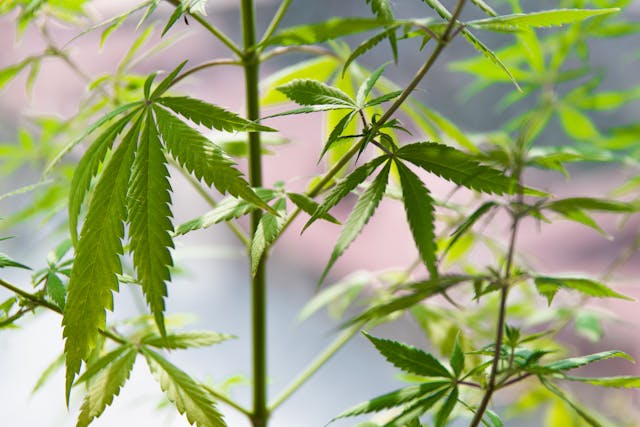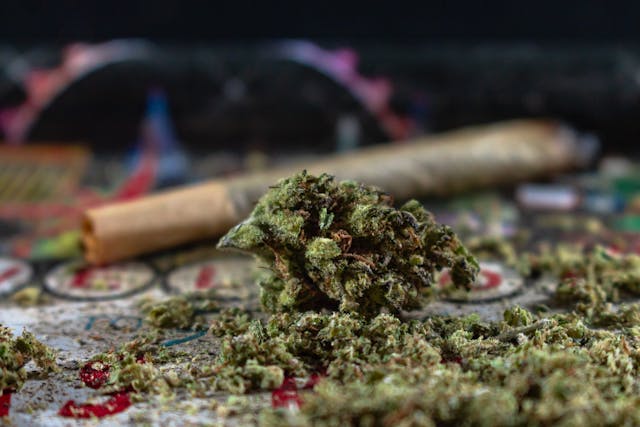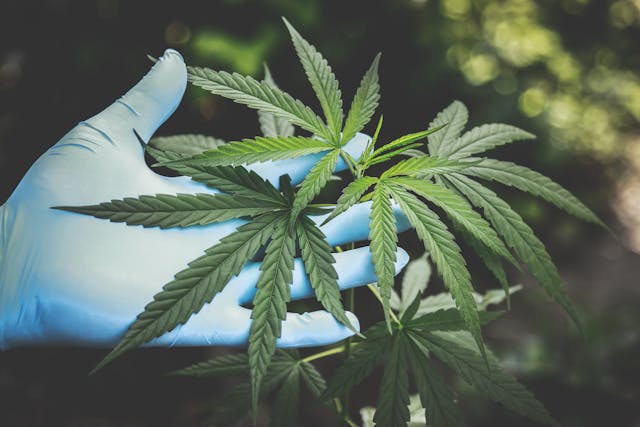Key Takeaways:
- Cannabis legalization in Canada has significantly impacted Winnipeg’s social and economic landscape
- Manitoba’s regulatory framework balances public health concerns with consumer access
- Local businesses like Canacity Cannabis Store are adapting to new regulations and market demands
- Education and responsible use are key priorities for both regulators and cannabis retailers in Winnipeg
- The legal cannabis market in Manitoba continues to evolve, with ongoing adjustments to policies and practices

The New Era of Cannabis in Winnipeg
Cannabis legalization has brought about significant changes to Winnipeg’s social and economic landscape. Since the Cannabis Act came into effect in October 2018, Winnipeggers have witnessed a transformation in how cannabis is perceived, sold, and consumed in their city. This article examines the current state of cannabis legalization and regulations in Winnipeg, offering insights into the local market and its impact on residents.
Manitoba’s Regulatory Approach
Balancing Public Safety and Access
Manitoba’s approach to cannabis regulation aims to strike a balance between ensuring public safety and providing reasonable access to legal cannabis products. The Liquor, Gaming and Cannabis Authority of Manitoba (LGCA) oversees the licensing and regulation of cannabis retailers in the province, including those in Winnipeg.
Age Restrictions and Possession Limits
In Winnipeg, as in the rest of Manitoba, the legal age for purchasing and possessing cannabis is 19. Adults can possess up to 30 grams of dried cannabis (or its equivalent) in public spaces. These restrictions are in line with federal guidelines but reflect Manitoba’s decision to set a higher minimum age than some other provinces.
Home Cultivation Ban
Unlike some other Canadian provinces, Manitoba has chosen to prohibit home cultivation of cannabis plants. This decision has been a point of contention for some Winnipeg residents who argue for the right to grow their own cannabis for personal use.

Retail Landscape in Winnipeg
Licensed Retailers
Winnipeg has seen a steady growth in licensed cannabis retailers since legalization. Stores like Canacity Cannabis Store have become part of the city’s retail landscape, offering a range of products to adult consumers. These businesses must adhere to strict regulations regarding product sourcing, packaging, and sales practices.
Product Diversity
Winnipeg’s cannabis stores offer a variety of products, including dried flower, oils, edibles, and topicals. The introduction of cannabis 2.0 products (edibles, extracts, and topicals) in late 2019 expanded the range of options available to consumers in the city.
Delivery Services
Many Winnipeg cannabis retailers, including Canacity, have adapted to consumer preferences by offering delivery services. This option has become particularly popular, especially in light of recent public health concerns.
Public Health and Education Initiatives
Harm Reduction Strategies
Winnipeg health authorities have implemented various harm reduction strategies related to cannabis use. These include public education campaigns about responsible consumption and potential health risks associated with cannabis use.
Youth Prevention Programs
A significant focus of Winnipeg’s cannabis regulations is preventing youth access and use. Schools and community organizations in the city have developed programs to educate young people about the risks of early cannabis use and the importance of making informed decisions.
Economic Impact on Winnipeg
Job Creation
The legal cannabis industry has created new job opportunities in Winnipeg, from retail positions to roles in cultivation, processing, and ancillary services. This has contributed to the city’s economic diversification.
Tax Revenue
Cannabis sales have generated new tax revenue for Manitoba, with a portion benefiting Winnipeg through various provincial funding mechanisms. This revenue is often earmarked for public health, education, and law enforcement initiatives.

Challenges and Ongoing Adjustments
Competing with the Illicit Market
One of the ongoing challenges for Winnipeg’s legal cannabis market is competing with the established illicit market. Factors such as price, product quality, and convenience play a role in consumer choices.
Addressing Social Equity
There’s growing discussion in Winnipeg about addressing social equity in the cannabis industry, particularly in light of historical disparities in drug law enforcement. Some advocates are calling for measures to ensure that communities disproportionately affected by previous cannabis laws have opportunities in the legal market.
Cannabis Tourism Potential
Attracting Visitors
Winnipeg is exploring the potential of cannabis tourism as a way to attract visitors and boost the local economy. However, this remains a contentious issue, with concerns about public consumption and the city’s image.
Event Regulations
The city is grappling with how to regulate cannabis-themed events and festivals. While there’s interest in such gatherings, they must comply with public consumption laws and other regulations.
Environmental Considerations
Packaging Waste
The cannabis industry’s reliance on plastic packaging has raised environmental concerns in Winnipeg. Some local retailers are exploring more sustainable packaging options to address these issues.
Energy Consumption
Large-scale cannabis cultivation facilities in Manitoba consume significant amounts of energy. There’s growing interest in Winnipeg for more sustainable growing practices and energy-efficient operations.

Medical Cannabis Access
Patient Rights
While much attention has been on recreational cannabis, Winnipeg continues to ensure access for medical cannabis patients. Local advocacy groups work to protect patient rights and improve accessibility.
Research Initiatives
Winnipeg’s medical community is involved in various cannabis research initiatives, contributing to the growing body of knowledge about the plant’s therapeutic potential.
Consumer Education and Responsibility
Product Information
Winnipeg cannabis retailers play a crucial role in educating consumers about different products, their effects, and responsible use. Staff training is an essential component of this educational effort.
Safe Consumption Practices
Public health campaigns in Winnipeg emphasize safe consumption practices, including information about onset times, potency, and potential interactions with other substances.
Law Enforcement Adaptation
Impaired Driving
Winnipeg police have adapted to new challenges related to cannabis-impaired driving. This includes training officers in detection methods and public education about the risks of driving under the influence of cannabis.
Public Consumption Enforcement
Enforcing public consumption laws remains a challenge in Winnipeg. Police and bylaw officers work to balance enforcement with community relations and public safety priorities.
Future of Cannabis Regulations in Winnipeg
Potential Policy Changes
As the cannabis market matures, Winnipeg may see further adjustments to local regulations. This could include changes to public consumption laws, licensing procedures, or product restrictions.
Industry Maturation
The cannabis industry in Winnipeg is expected to continue evolving, with potential consolidation among retailers and the emergence of new business models.
Cannabis and Winnipeg’s Cultural Landscape
Changing Perceptions
Legalization has contributed to shifting perceptions of cannabis in Winnipeg. The plant’s presence in mainstream retail spaces has normalized its use for many residents.
Community Integration
Cannabis businesses in Winnipeg are increasingly seeking ways to integrate positively into their communities, sponsoring local events and contributing to neighborhood initiatives.
Cannabis Product Categories Available in Winnipeg
| Product Category | Description | Typical THC Range | Common Uses |
|---|---|---|---|
| Dried Flower | Traditional cannabis buds | 5-30% | Smoking, vaporizing |
| Oils | Concentrated extracts | 10-30 mg/mL | Oral consumption, cooking |
| Edibles | Food products infused with cannabis | 2.5-10 mg per serving | Oral consumption |
| Topicals | Creams, lotions, balms | Varies | Topical application |
| Concentrates | High-potency extracts | 50-90% | Vaporizing, dabbing |
Cannabis Retail Statistics in Winnipeg (2023)
| Metric | Value |
|---|---|
| Number of Licensed Retailers | 85 |
| Average Price per Gram (Dried Flower) | $9.50 |
| Most Popular Product Category | Dried Flower |
| Percentage of Sales via Delivery | 30% |
| Annual Cannabis Sales Revenue | $150 million |
Consumer Awareness and Safety
- Know your limits and start with low doses, especially for new users
- Be aware of the delayed onset of effects with edible products
- Store cannabis products securely, away from children and pets
- Never drive or operate machinery while under the influence of cannabis
- Respect public consumption laws and the rights of non-users
Conclusion
The legalization and regulation of cannabis in Winnipeg represent a significant shift in public policy and social norms. As the city continues to navigate this new landscape, ongoing dialogue between regulators, industry stakeholders, and the public will be crucial in shaping a responsible and thriving cannabis market. While challenges remain, the overall trend points towards a maturing industry that balances consumer access with public health and safety concerns. Winnipeg’s experience with cannabis legalization offers valuable lessons for other jurisdictions considering similar policy changes.




